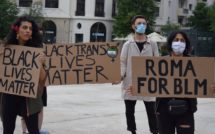

In this section of Campus, EuropeNow features a selection of scholarly articles and books on topics pertinent to the teaching of Europe or teaching in Europe that were published within the last 5 years. This dynamic bibliography, with monthly installments, seeks to highlight both pedagogy research as well as critical analyses of debates taking place in higher education in and about Europe.
If you are interested in reviewing any of the books featured in any of our Campus Round-Ups, please contact our Research and Pedagogy Chair, Hélène Ducros, at helene@alumni.unc.edu
1. Ungrading
Edited by Susan D. Blum
Abstract: The moment is right for critical reflection on what has been assumed to be a core part of schooling. In Ungrading, fifteen educators write about their diverse experiences going gradeless. Some contributors are new to the practice and some have been engaging in it for decades. Some are in humanities and social sciences, some in STEM fields. Some are in higher education, but some are the K–12 pioneers who led the way. Based on rigorous and replicated research, this is the first book to show why and how faculty who wish to focus on learning, rather than sorting or judging, might proceed. It includes honest reflection on what makes ungrading challenging, and testimonials about what makes it transformative.
Find this book at the West Virginia University Press here
2. Dramatising the Shock of the New: Using Arts-based Embodied Pedagogies to Teach Life Skills
By Sheila Robbie and Bernie Warren
Abstract: The digital economy and the global pandemic, together with the effects of climate change, have taken a human toll affecting the pace of everyday life, creating an exponential increase in anxiety and stress related diseases. Today’s complex, globalised world creates a need to challenge and reconceptualise educational priorities. In an increasingly polarised world of beliefs and values, with a rise in populism and nationalism, empathy is essential. In order to function successfully, one needs to know who people are, and the whys and wherefores of their actions and beliefs. This article focuses on how the Arts and humanities can teach a new generation of life skills necessitated by our globalised society and the socio-political aspects of immigration. It discusses how embodied pedagogies help develop self-awareness, emotional regulation and affective empathy and reduce stress. The authors present Arts-based pedagogies and educational strategies that bring history, cultures and beliefs alive and help counteract hatred, tribalism and racism and the illusion of ‘us and them.’ The article examines what these changes in pedagogy can offer to the discourse, both in the need to keep body/mind healthy and acquisition of new skills necessary for adapting to a changing global environment and cultural /political landscapes.
Find this article in Discourse: Studies in the Cultural Politics of Education here
3. Theorizing Teaching and Learning in Asia and Europe: A Conversation between Chinese Curriculum and European Didactics
Edited by John Chi-Kin Lee, Kerry J. Kennedy
Abstract: There has been much debate in recent times between the Anglo American tradition of curriculum studies and the Continental and North European tradition of didactics (Didaktik). As important as such debate has been, this book seeks to add new voices to the debate representing ideas and traditions from a different part of the world. The focus is on Chinese curriculum thinking that has passed through a number of stages and currently represents a blend of some aspects of the American tradition and Chinese cultural traditions. How does Chinese thinking about curriculum, teaching and learning resonate with European didactic traditions and what are the implications for theorizing an expanded field of curriculum studies? This book deliberately transcends borders and cultures to explore new territory, to provide a platform for open dialogue and to open up new areas of investigation.
Find this book at Routledge here
4. Portuguese Policies Fostering International Student Mobility: A Colonial Legacy or a New Strategy?
By Thais França, Elisa Alves, and Beatriz Padilla
Abstract: This paper explores policies on international student mobility to Portugal from within the Lusophone space, analyzing the cases of Angola, Cape Verde and Brazil. We argue that Portuguese strategies to attract international students respond to different demands and interests embedded in its geopolitical memberships. One the one hand, they respond to pressure from the European Commission to increase the internationalisation level within the European Higher Education Area. On the other hand, they are embedded within Portugal’s desire to continue its influence over the former colonies. We analyze available statistical data and policy documents on Angolan, Cape Verdean and Brazilian students in Portugal, using insights from postcolonial theoretical frameworks. Our results suggest that Portuguese policies on international student mobility, even if discontinuous over time, still aim at maintaining a leading role among the Portuguese-speaking countries, through practices rooted in neocolonial logics. However, Portugal’s membership of the European Union propels the need to adapt to wider political forces through contextual and opportunistic strategies as well.
Find this article in Globalisation, Societies and Education here
5. Culturally Responsive Pedagogy: Working towards Decolonization, Indigeneity and Interculturalism
Edited by Fatima Pirbhai-Illich, Shauneen Pete, and Fran Martin
Abstract: This book convincingly argues that effective culturally responsive pedagogies require teachers to firstly undertake a critical deconstruction of Self in relation to and with the Other; and secondly, to take into account how power affects the socio-political, cultural and historical contexts in which the education relation takes place. The contributing authors are from a range of diaspora, indigenous, and white mainstream communities, and are united in their desire to challenge the hegemony of Eurocentric education and to create new educational spaces that are more socially and environmentally just. In this venture, the ideal education process is seen to be inherently critical and intercultural, where mainstream and marginalized, colonized and colonizer, indigenous and settler communities work together to decolonize selves, teacher-student relationships, pedagogies, the curriculum and the education system itself. This book will be of great interest and relevance to policy-makers and researchers in the field of education; teacher educators; and pre- and in-service teachers.
Find this book at Palgrave Macmillan here




